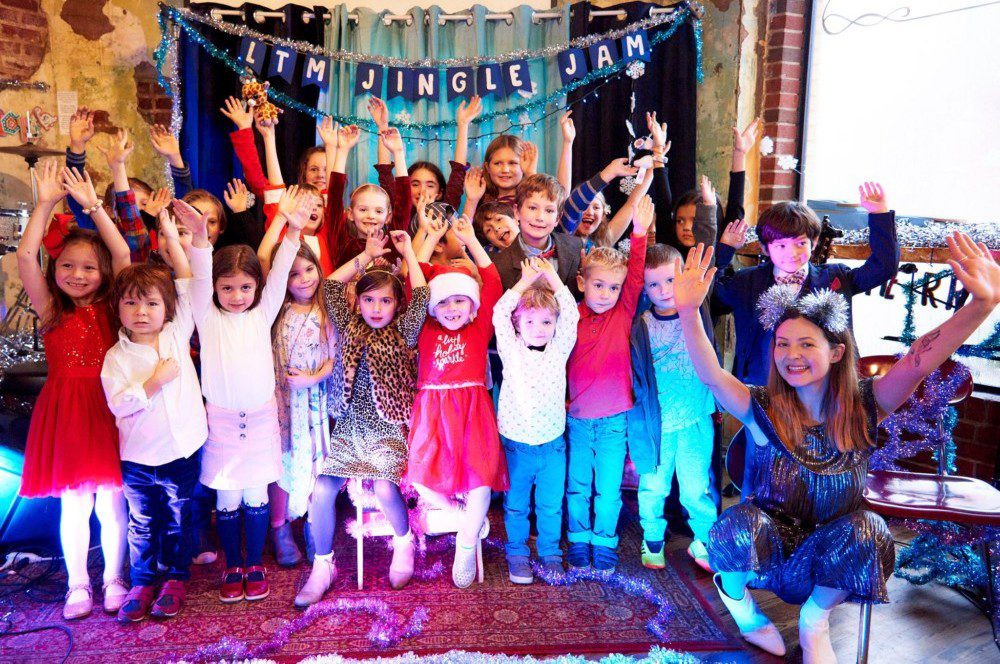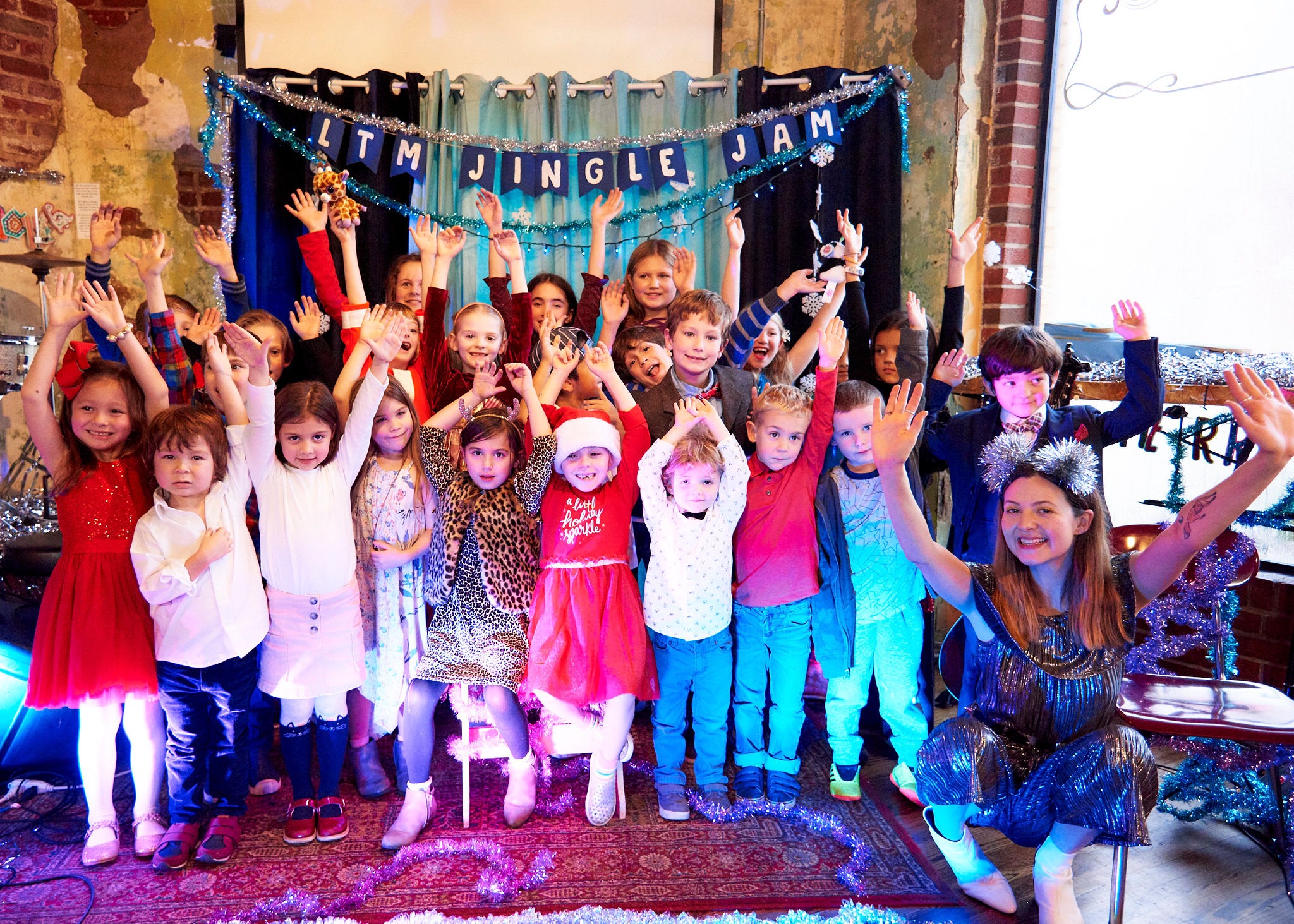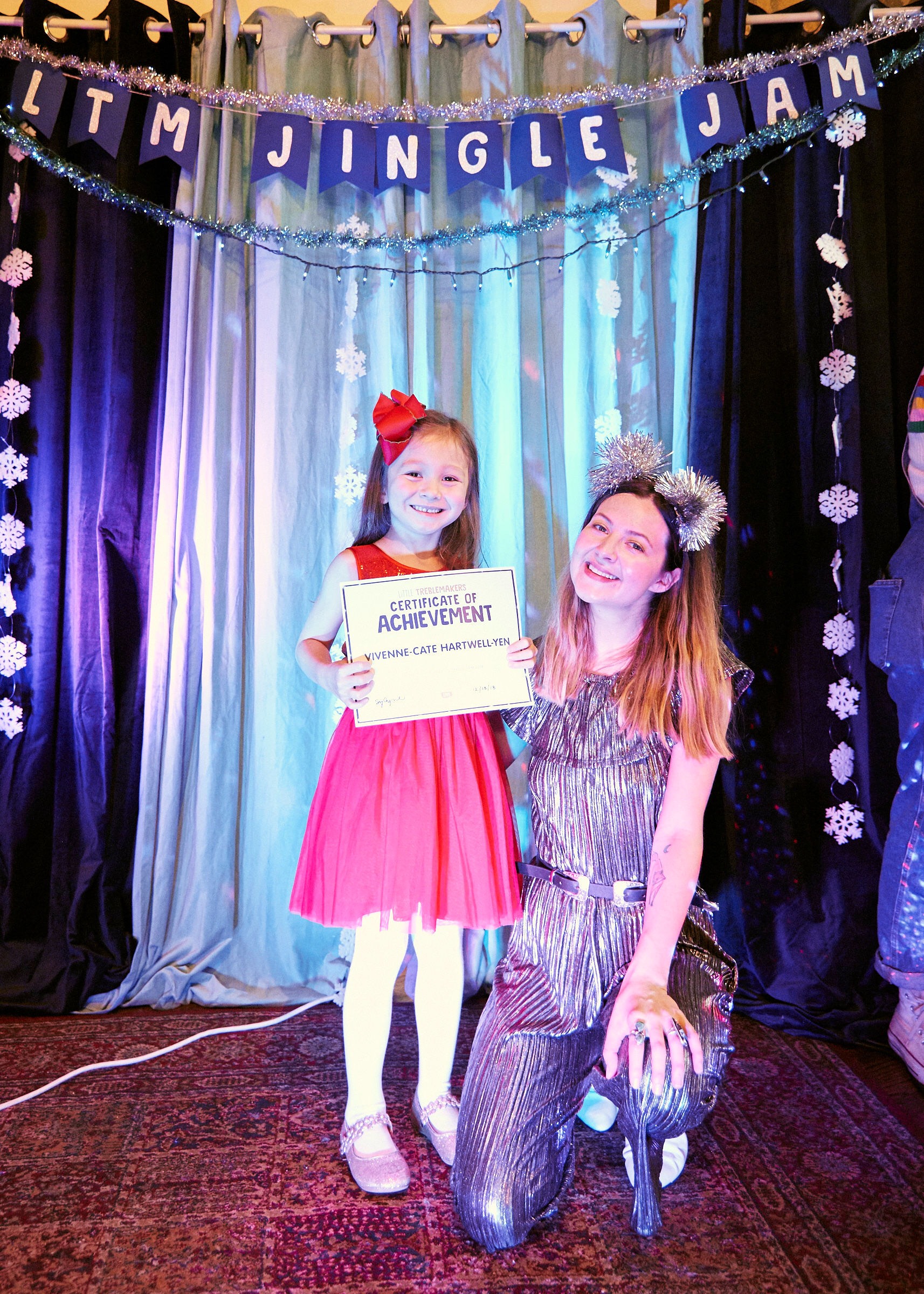PLAYING ATLANTA: Catching Up with Atlanta’s Favorite Girl-Boss, Sydney Eloise


With a rapidly growing music school and a successful music career of her own, calling Sydney Eloise busy would be an understatement. Many Atlanta residents know her as the frontwoman of ’60s-infused indie pop group Sydney Eloise & The Palms, but she’s also founder at Little Treblemakers, Atlanta’s most colorful and innovative music school for children. With an aesthetic that can best be described in one word – sunshine – Sydney’s ability to guide children through their initial immersion into the world of melody and chord progression is rivaled only by her bright smile and infectious love for music. Her immediate connection with her students is obvious as they perform at their showcases, playing simple melodies or writing songs of their own.
Despite her hectic schedule, Sydney took the time to sit down with Audiofemme to discuss all things musical and magical in the new year. Read on for more about Atlanta’s favorite girl-boss and the world she’s created.
AF: You’ve done it all: written, recorded, and toured as Sydney Eloise & The Palms, taught at a Montessori school, and opened a children’s music academy. What’s been the most challenging aspect, and — on the flip side — what’s been your proudest moment?
SE: It’s been a journey, and I’ve enjoyed every phase and lesson that led me to this moment. I needed to tour and record just as much as I needed to teach full-time as a Montessori assistant. In those moments, I didn’t realize I was setting myself up for what’s next, or that I was mastering skills that would lead to me start my own business. I mostly felt a little lost as to what my path was. I love working with young children – their pure optimism and honesty are virtues we need more of in today’s world – and, as a songwriter and musician, I decided to see if I could apply my style of teaching with music education.
The challenge was taking a leap of faith and opening Little Treblemakers without a clue as to how this small business would evolve, if at all. I had no clue what I was doing, but I knew it was what I needed. I had a few students and no other source of income, so I buckled down and worked my tail off learning all I could about growing a business. I experimented with lesson plans and teaching materials and called upon my mentors and other teachers for guidance until I found my style and method. I am so proud to say LTM, at only (officially) a year and a half old, has a full roster with a waiting list, along with plans to expand by adding more teachers in the New Year. I am so amazed at the rapid growth of LTM, I’m just trying to keep up!
AF: How did growing up in a musical and entrepreneurial family help you lay the foundation for the life you’d end up building?
SE: We are our environment, and as a child, you absorb so much: what you hear, see, and experience really shapes your story. I was very fortunate to have two entrepreneurial parents who were also musicians. I watched my parents record music in their home studio, I saw my mother open a Montessori School in our house, and my father start his own construction company. He also built a website that was totally before its time, called Music Makers. It connected musicians together to share original music and helped them form bands in their area. When you grow up observing that you can create anything you want, the idea of working for yourself doesn’t seem so scary or far-fetched. If you put in the time, work your butt off, and are willing to make sacrifices and be scared, you will reap the rewards of following your dreams.
AF: Who or what has been the greatest inspiration for you? What keeps you going on the bad days?
SE: There are days where I feel totally overwhelmed with the business and how fast it is growing. I catch myself saying things like, “What am I doing? I don’t know how to run a business!” In those moments, I research and educate myself on subjects I still need to master. I talk to my friends and I call mentors who have been where I am, and I am reminded that no one really knows how to do this, and there is no secret manual to success. You just solve tiny problems every day until the big problems are smaller, and then you tackle those. My days are never bad! I get to work with incredibly adorable and talented little humans every day, and they make me smile and laugh!

AF: What’s it like to encourage and inspire the next generation of musicians? Which musicians inspired you as a child?
SE: It’s so magical to watch these kids bloom before my eyes! It’s incredible how quickly they can master concepts and grow their skills. To see my first-year students master chord changes and simple melodies, to my second- and third-year students writing original pieces or picking out groovy songs to perform, I am always in awe. I remember as a kid spending hours and hours looking up chord charts to Beatles songs, learning to play Joni Mitchell’s “Yellow Taxi” and Alanis Morissette’s “Hand In My Pocket,” so it’s really cool to have students who are interested in an array of musicians, from Bob Dylan, Paul Simon, and Sheryl Crow to Taylor Swift. We all start somewhere, and oftentimes the things we learn early on remain very powerful later in our lives.
AF: Do you think you’ll return to writing and performing, or do you think that opening and running Little Treblemakers is where you’re meant to be?
SE: I am always writing, because that is just who I am. I do miss performing and recording very much, and plan on diving back into that world very soon! I am right where I am meant to be though, and opening Little Treblemakers has given me even more purpose and reflection into the type of art I want to make and share with the world. Music is powerful and I want to contribute in a thoughtful way.
AF: How has the Atlanta creative scene impacted you, as a musician and as an entrepreneur? Why do you think it’s become such a refuge for creative types?

